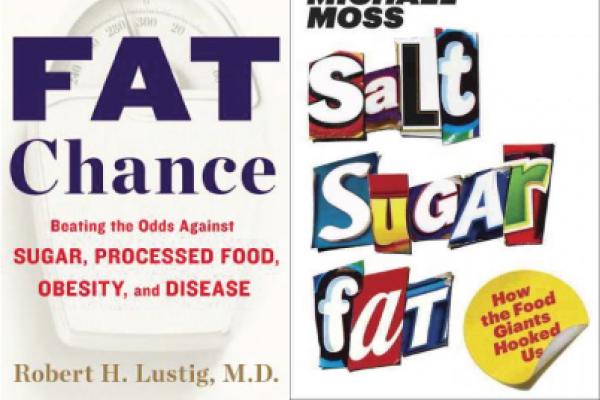If you eat food, here are two newish books you should know about.
You may already have met Robert H. Lustig, author of Fat Chance: Beating the Odds Against Sugar, Processed Food, Obesity, and Disease (2012). Lustig is the UCSF professor whose surprisingly riveting 90-minute lecture, "Sugar: The Bitter Truth," has already had nearly 3.5 million hits on YouTube. The thesis of his lecture: it's not dietary fat that's making Americans gain weight, it's sugar. And sugar is doing much worse things than increasing our clothing size. It's setting us up for a whole range of lethal diseases that are almost entirely avoidable.
...
In Salt Sugar Fat: How the Food Giants Hooked Us (2013), Moss, a Pulitzer Prize-winning investigative reporter, tells what the food industry has been up to during the last couple of decades. Food executives, Moss says, are nervous: people are figuring out that convenience foods aren't good for them.
Read the Full Article

